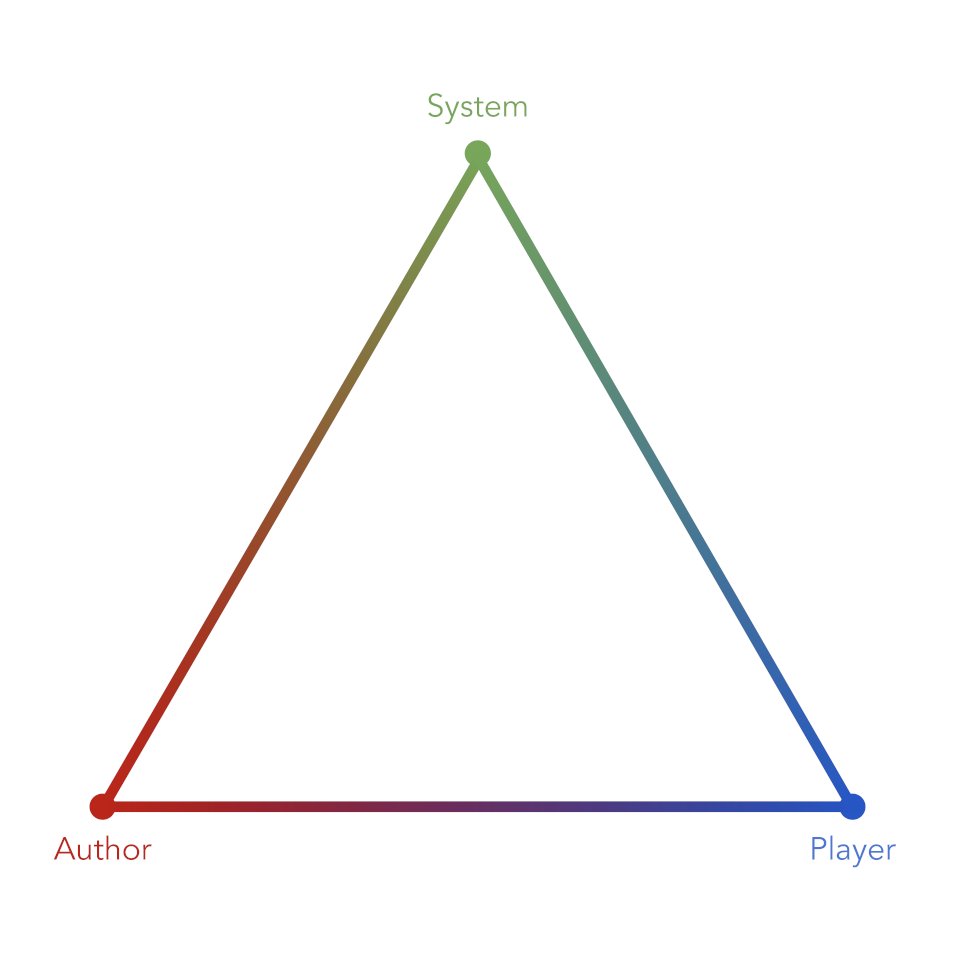there's a lot of confusion in game design discourse around whether the player or the game is telling the story. early on there was a lot of "it must be the player, bc interactivity is _special_". then backlash led to the modern idea of "narrative design" https://twitter.com/catacalypto/status/1272644426842517505
i like to draw an even further distinction, where the "locus of narrative authority" for a particular game lies somewhere in a triangle between three points: game creators; game _systems_ (over which the creators' control is often incomplete, due to emergence), & players
in Dwarf Fortress, as discussed in the QT'd thread, both the systems & the players exercise an unusual amount of narrative authority. this tends to be true for simulation-driven games in general: simulation acts as a "living material" from which players shape their own stories
but DF is so complicated as to essentially be the Photoshop of playful storytelling tools: the deep menus, convoluted UI, & focus on high-detail simulation make it difficult to use for storytelling unless you're willing to put in a lot of time & effort to learn how it works
DF is a true "authorship-oriented" play experience: it embraces the idea of players as authors of the story, unlike "participation-oriented" play experiences (you embody a character in the world) or "readership-oriented" play experiences (you let the game tell you a story)
but it feels like game design practice is only just now coming around to the idea that authorship-oriented play experiences deserve to exist as a genre in their own right. they've been conflated with participation-oriented experiences for much of the history of digital games
as a result, there's a ton of design work yet to be done around lowering the barrier of entry to participation in authorship-play. how do we build DF-inspired experiences that grant access to the play-pleasures of authorship without all the associated menu complexity?
tabletop games are ahead of digital games on this front, bc tabletop designers realized the distinction between authorship & participation earlier. see eg Microscope, The Quiet Year, & @aaronareed's Archives of the Sky for examples of explicitly authorship-oriented TTRPGs
that's why a lot of my recent work has focused on closing the gap between simulation-driven digital games & authorship-oriented TTRPGs. see eg Why Are We Like This?, a sim-driven authorship game that borrows extensively from TTRPG storytelling mechanics https://twitter.com/maxkreminski/status/1243247010825654273
anyway… if you liked this thread, it’s largely a recapitulation of my Roguelike Celebration 2019 talk: https://twitter.com/maxkreminski/status/1187062184972390400
…with some terminology from an upcoming literature review paper that expands on the ideas here thrown in. stay tuned for more!
…with some terminology from an upcoming literature review paper that expands on the ideas here thrown in. stay tuned for more!

 Read on Twitter
Read on Twitter


